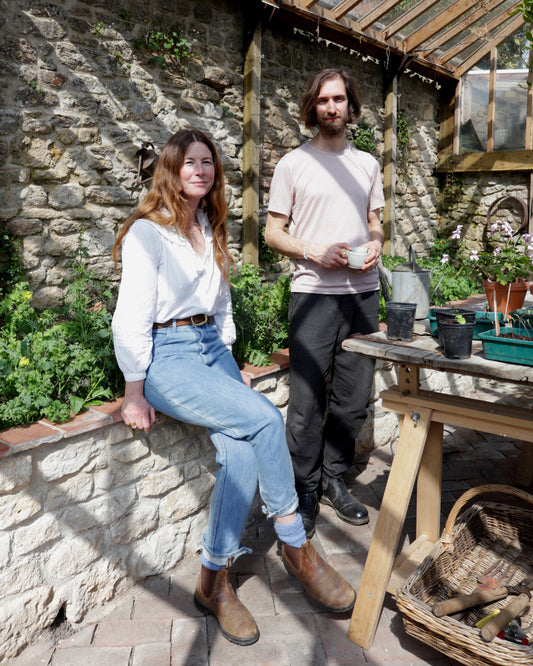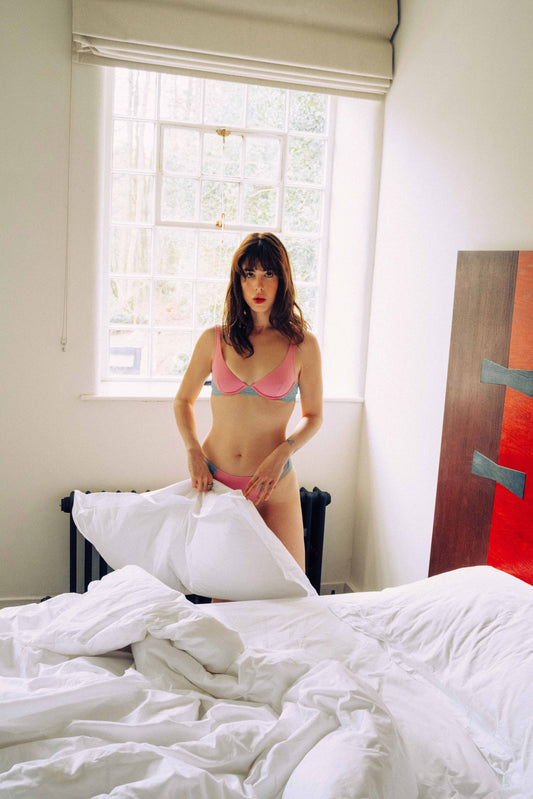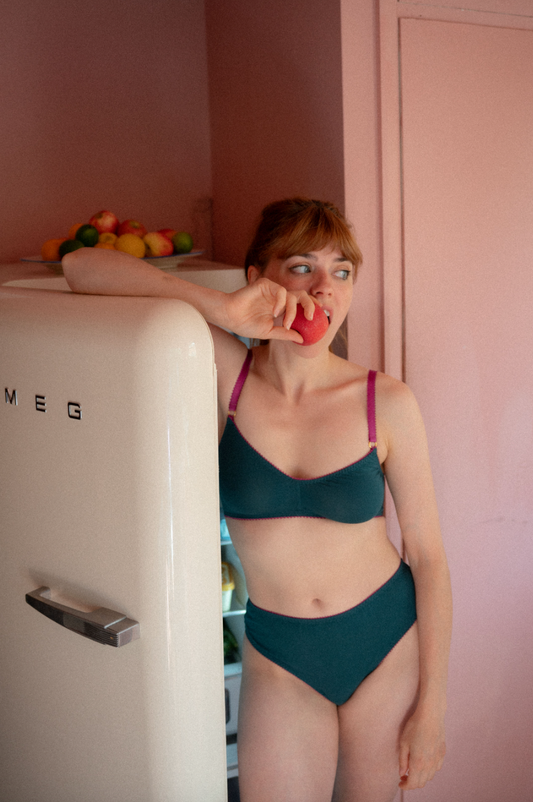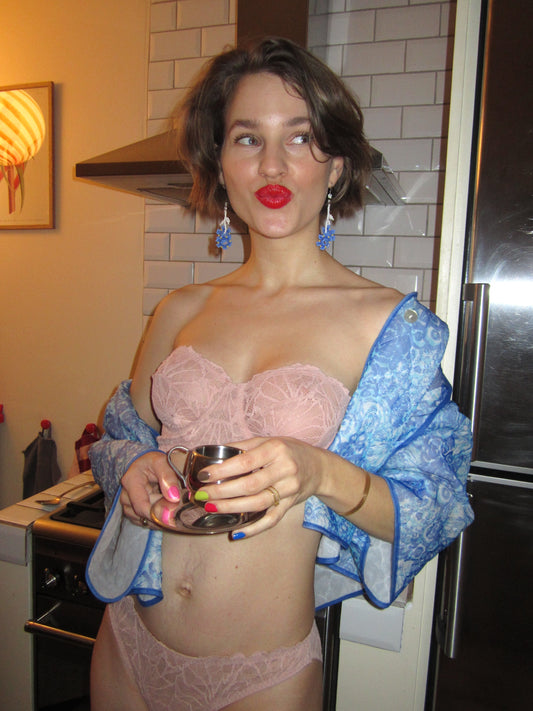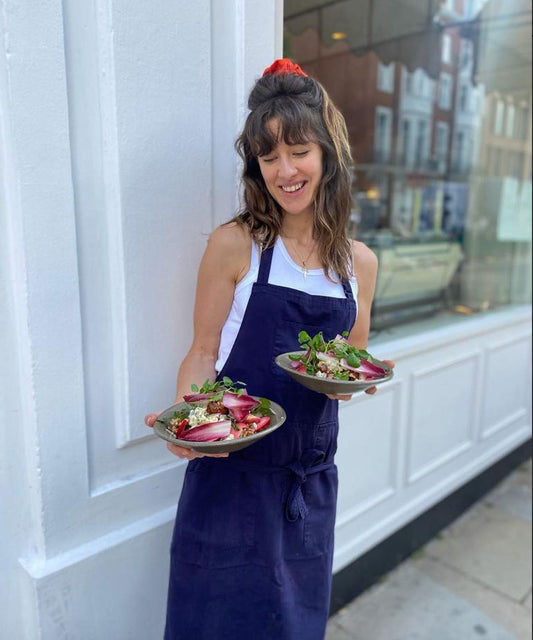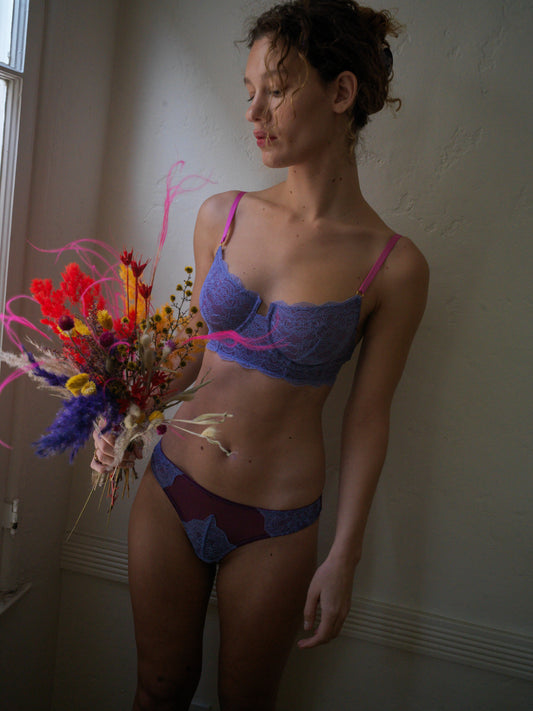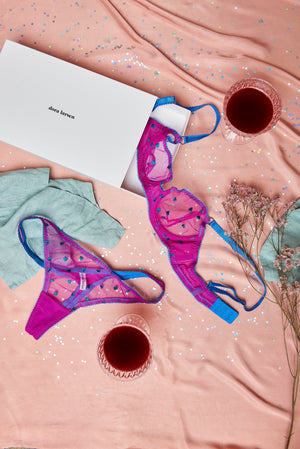This week in our At Home With series we head to Sweden to talk to photographer and creative, Sofia Grahn on all things skin involving her journey and relationship with acne…
Tell us about you and the journey of how you got to where you are today?
“The past five years have been quite the rollercoaster to be honest! I never imagined that I would be in my late twenties and not have everything figured out. I've had some bumps in the road as far as mental health goes, and it's good to be at a better place mentally and physically. When I got severe acne in my early 20's life felt very dark. I was depressed and isolated myself to the degree that I didn't want to leave my flat to get groceries. I highly doubted my capabilities. My hopes and aspirations were simply to just get to the other side where my face didn't hurt constantly and where I didn't feel that I had to avoid my reflection in the mirror every morning. Growing up in a small town in Sweden I never in a million years saw myself as someone that would be an advocate for anything, let alone something that I myself struggled with so much. But I'm happy to say that it's been years of sharing my skin on Instagram that has both helped me and other people feel better in our skin."
What made you want to start sharing your skin's journey and has your relationship with it changed since you started?
“It was when I found peoples Instagram pages dedicated to sharing their unfiltered skin and their struggles with their skin under the hashtag of the medication that I was about to start. I knew it was something that I too needed to for myself. I felt like I needed to do something drastic to turn things around, regardless of how scared I was. For me it wasn't necessarily a want, but a need. I never shared my skin without makeup online and previously edited out any kind of visible texture of my pictures. When I hit post on that first picture of my skin with visible acne my heart was in my throat. I really went from hating my skin, to actively working on rewriting these intense negative thoughts of my skin into finding the beauty of my skin, and now I would say I've settled into neutrality. I love showcasing my scars for the simple reason that it's unrepresented in a lot of imagery, whether it be on traditional media, commercials or just people’s social media feeds. I actually like my acne scars now, they're a part of me and everyday remind me that I overcame something that hurt both mentally and physically, and I came out stronger on the other side. But more often than not I don't think too much about my skin, it doesn't make or break my day like it used to. It just is what it is. And after spending a lot of years letting the condition of my skin define my happiness, that felt like a huge burden off of my shoulders.”

What is “skin neutrality’ and how do you think the future of the skincare and beauty industry looks?
“Skin neutrality is both a movement and a practice where you actively try to change the overwhelmingly negative narrative that's often given to skin conditions, or just skin that doesn't typically fit into what society's beauty ideals deems as desirable, beautiful or even worthy. Often myths of cleanliness, bullying and debilitating mental health effects are associated with dealing with a skin condition so what skin neutrality aims for is for people navigating skin conditions (or wrinkles, skin texture etc) to feel better about themselves and live a full and happy life no matter what they're skin looks like. This can be done in multiple different ways, but what I like to do is to actively share pictures or videos of my skin in a context that feels empowering, relatable or just neutral. That way the hopes are that someone who is currently struggling with feeling good about themselves can see a different type of representation than what they're used to and know that they aren't alone. Hopefully that works as something that removes this need to achieve "perfect skin" in order to feel good, and instead just viewing your skin as your vessel to get through life with a conviction that you're capable and worthy regardless of what you look like.
As for the future of skincare and beauty, I'm hoping that industries are able to keep up with the times, as well as take responsibility for how its shaped decades of beauty ideals and fuelled narratives that are harmful. I've seen some positive changes within the beauty space as far as advertising goes where I've noticed a more diverse range of skin conditions being represented without it necessarily being centred around a negative narrative. But on the other hand, trends centred around how skin is "supposed" to look aren't really going anywhere. The most recent example of this is the "glass skin" trend which I feel quite uneasy about. It's just weird to describe skin that's the body's largest organ with something that's inanimate. So sometimes I do feel like the skincare and beauty industry is bound to be this double-edged sword where they are making progress in some areas, but going backwards in others.”

How do you think social media has impacted how we see our skin?
“I think it's impacted, and in some ways defined, how we see our skin. Social media can both be a blessing and a curse when it comes to how it impacts our self-worth. At one end of the spectrum it's the skin smoothing filters available at the tap of a finger. Being overexposed to filtered or curated pictures of skin that perfectly align with the current beauty standard and scrolling through content heavily emphasising the importance of achieving perfection, it is inevitable to start being critical towards your own appearance after seeing that every single day. But on the other side of the spectrum there's the images of bodies, skin and experiences that feel relatable, raw and more centred around showcasing what's not typically praised or even visible in traditional media. So it really can be both harmful or empowering. I think it's important to take a good look at your following and make sure that what you scroll through everyday feels fun and healthy for you.”
How do you deal with your bad days and what makes you feel good or boosts your confidence when you need it most?
“On bad days I tend to give myself some grace to feel the feelings. I don't put pressure on myself to get over it but instead to fully explore what it is that triggered negative self-talk. I do that with different methods, sometimes I like to write it down in words and sometimes I like to simply exist in my sadness and do things that feel comforting like watching a rom-com. Sometimes it helps me to turn to photography and make it a point to photograph what I'm currently feeling insecure about. For me it's a process of seeing my body or skin through a different lens (quite literally) and creating something honest and raw. I think since I started my page, taking pictures of my skin, it’s worked as some kind of exposure therapy for me and it continues to help on days when I feel insecure. In that way I can view my body as something worth capturing."
We love the way you have shot and styled our pieces. What is your favourite Dora Larsen piece and why?
“I absolutely adore the Mia graphic lace underwire bra. I feel so confident wearing it! Green has always been my favourite colour and I wear it all the time. The colour combo with purple straps combined with the green lace is beautiful. And the fit is amazing, fully supportive and offers that confidence boost. Perfection.”
Sofia wears the Mia Graphic Lace Underwire Bra with matching Knicker, the Skyler Organic Cotton Underwire Bra with matching High Waist Knicker and the Collette Embroidery Underwire Bra and matching Thong, all in a size 32DD and UK12.
Find Sofia here.
Shop her edit here.




